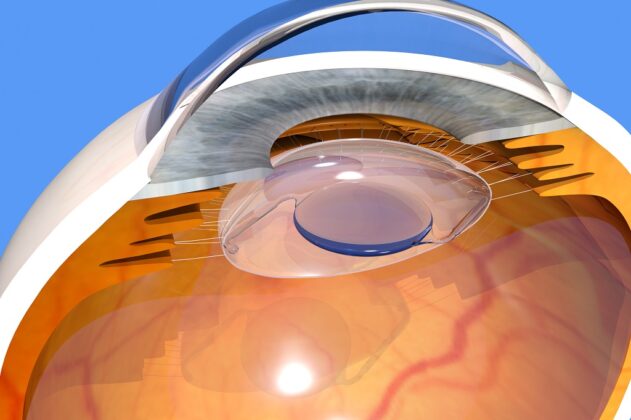Are you considering RLE surgery? If so, you’re not alone. This type of surgery is becoming increasingly popular, and for good reason. It can be incredibly effective in treating a wide range of eye conditions. In this blog post, we will discuss everything you need to know about RLE surgery. We’ll cover the basics, such as what it is and what it can treat, as well as more specific information like the risks involved and the recovery process.
Contents
What Is RLE Surgery?
This type of surgery is one of the most popular types of vision correction surgery. It is also called refractive lens exchange, or RLE. RLE surgery is a minimally invasive outpatient surgery that corrects vision by removing the eye’s natural lens and replacing it with an artificial intraocular lens or IOL.
This type of surgery is a good option for patients who are not candidates for LASIK surgery or other refractive surgeries because of their age, corneal thickness, or other factors. RLE can also be done to correct presbyopia, which is the loss of near vision that occurs with age.
This type of surgery is also sometimes done for cosmetic reasons to change the color of the eyes. RLE surgery is a very safe and effective procedure with a high success rate. Most patients who have RLE surgery achieve 20/20 vision or better.
What Does RLE Surgery Treat?
This Surgery treats a lot of different things.
Refractive Error
The main thing that it treats is a condition called refractive error. Refractive error is when the eye does not focus light properly on the retina, which is the back part of the eye. This can cause problems with your vision. Refractive error is also called nearsightedness, farsightedness, or astigmatism. RLE surgery, then you should talk to your doctor about it.
Cataract
A cataract is another type of problem that this surgery can help with. A cataract is when the lens of your eye becomes cloudy. This can make it hard for you to see. If you have a cataract, your doctor may recommend that you have this type of surgery to remove it.
Glaucoma
Glaucoma is another condition that this surgery can treat. This is when there is too much pressure in your eye. This pressure can damage the nerves in your eye and cause vision problems. If you have glaucoma, your doctor may recommend that you have RLE surgery to help relieve the pressure in your eye.
Rhegmatogenous Retinal Detachment
Another condition that this surgery can treat is called rhegmatogenous retinal detachment. This is when the retina, which is the back part of the eye, detaches from the back of the eye. This can cause vision problems. If you have this condition, your doctor may recommend that you have RLE surgery to reattach the retina.
These are just some of the conditions that RLE surgery can treat. If you think you may need RLE surgery, talk to your doctor about it.
Benefits Of RLE Surgery
There are many benefits to having this type of surgery.
RLE surgery can improve your vision. It can also help relieve pressure in your eye if you have glaucoma. There can also be many other benefits to having the surgery, such as being able to see better at night or being able to see more clearly when you are driving.
These benefits also help you live a better life. With RLE surgery, you will be able to do things that you may not have been able to do before, such as reading or playing sports. You will also be able to enjoy your life more because you will not have to worry about your vision as much.
Sometimes there are risks with any surgery, but the risks with this surgery are very low. The chances of having a serious complication from the surgery are very low.
Risks Of RLE Surgery
Like with any surgery, there are some risks involved with this surgery.
The most common risk is that of infection. This is usually a very minor infection and can be easily treated with antibiotics. There is also a small risk of bleeding. This usually goes away on its own and is not a serious problem.
There is also a risk that the surgery will not work. This is usually because the eye does not heal properly after the surgery. If this happens, you may need to have another surgery to fix it.
Overall, the risks of this surgery are very low. The benefits of the surgery far outweigh the risks.
If you think you may need this surgery, talk to your doctor about it. They can help you decide if it is right for you.”
Conclusion
RLE surgery is a safe and effective way to treat refractive errors. It is important to have realistic expectations about the procedure and its results. Be sure to discuss your goals and concerns with your surgeon before having RLE surgery.
RLE surgery can correct refractive errors and improve vision. However, it is not a cure for all vision problems. Some patients may still need to wear glasses or contact lenses after surgery. RLE surgery is a good option for people who are not satisfied with their current vision correction methods, such as glasses or contact lenses.
If you are considering RLE surgery, be sure to talk to your doctor about the risks and benefits of the procedure. Only you can decide if RLE surgery is right for you.
A Word From Eye Mantra
Here at Eye Mantra, we have an incredibly skilled team of health care professionals who will be happy to help you out. For any assistance regarding eyes and other related issues, you can reach out to us.
Book an appointment with us immediately by calling +91-9711115191. However, you can even mail us at [email protected] or visit our site- EyeMantra.



